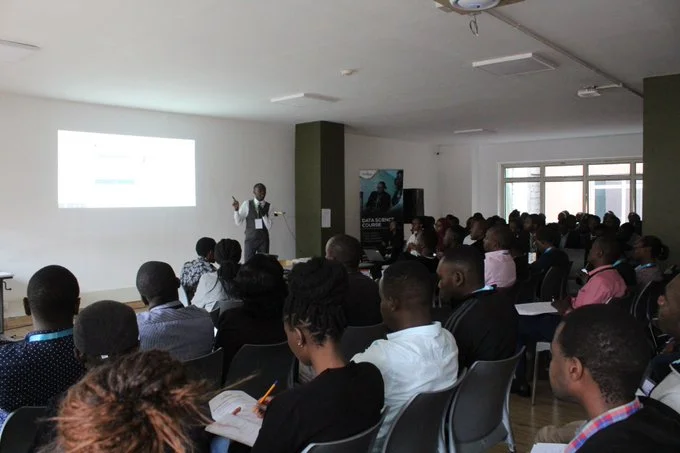BY JACOB KUSHNER
As Africa’s ICT sector grows, many young Africans are hard at work, brushing up their skills for tomorrow’s jobs. In Nairobi, a privately owned coding school called Moringa School has become a popular place in which to find them.
Moringa’s core four-month programme trains tech-savvy young Kenyans to become proficient in different coding languages and offers extension courses in up-and-coming fields like mobile development. At just $1,200, it’s far less expensive than a university degree. That may be part of the reason demand for Moringa is off the charts: the school has been operating for just over two years, and yet one recent application pool received 400 applications for just 27 openings.
Those who are lucky enough to get in are among Nairobi’s most qualified young coders. Some have degrees in computer science from top Kenyan universities. Others put off formal study or have dropped out of university altogether.
Before he enrolled, 24-year-old Ian Munene was attending one of Kenya’s top universities for technology studies. But he said his professors were too concentrated on the theory behind innovation to adequately teach him how to innovate in practice.
When he graduated, Munene says he “tried to find a job, but from what feedback I got, I wasn’t ready.” He was told he wasn’t qualified to fill the ICT positions that existed. “There’s a gap between university education and what employers actually need,” says Munene. “Moringa bridges that gap.”
Many of Moringa’s graduates go on to work for major East African and international companies. Tonee Ndungu, who hired two of Moringa’s early graduates to work for his digital textbooks start-up, Kytabu, said he recruited coders from as far as India and Kazakhstan before finally finding qualified Kenyan coders at Moringa. “There’s just nowhere for them to go to learn,” Ndungu told Africa Renewal.
Moringa is just one of many initiatives that are preparing young Africans for jobs in ICT. The New York–based company Andela offers Nigerians a four-month programming course over the Internet and then puts them to work coding for US organizations or companies. And last year a public-private partnership called Africa Code Week helped 89,000 young people in 17 African countries write their very first lines of code.
“You have so many developers. But where are the good ones?” asks Moringa co-founder Frank Tamre, 28, who left his job as a programming consultant at Intel to launch Moringa.
“It’s the same thing when you go to Uganda or Tanzania,” says Tamre, speaking of Africa’s urban, educated youth. “Most of them, they want to be creators.” But with practical educational opportunities like Moringa at their disposal, he hopes they’ll be able to put their creative ambitions to use.
This article is republished by The Youth Café courtesy of Jacob Kushner, and UN Africa Renewal. Additional input added by Kelvin Kiprotich.

